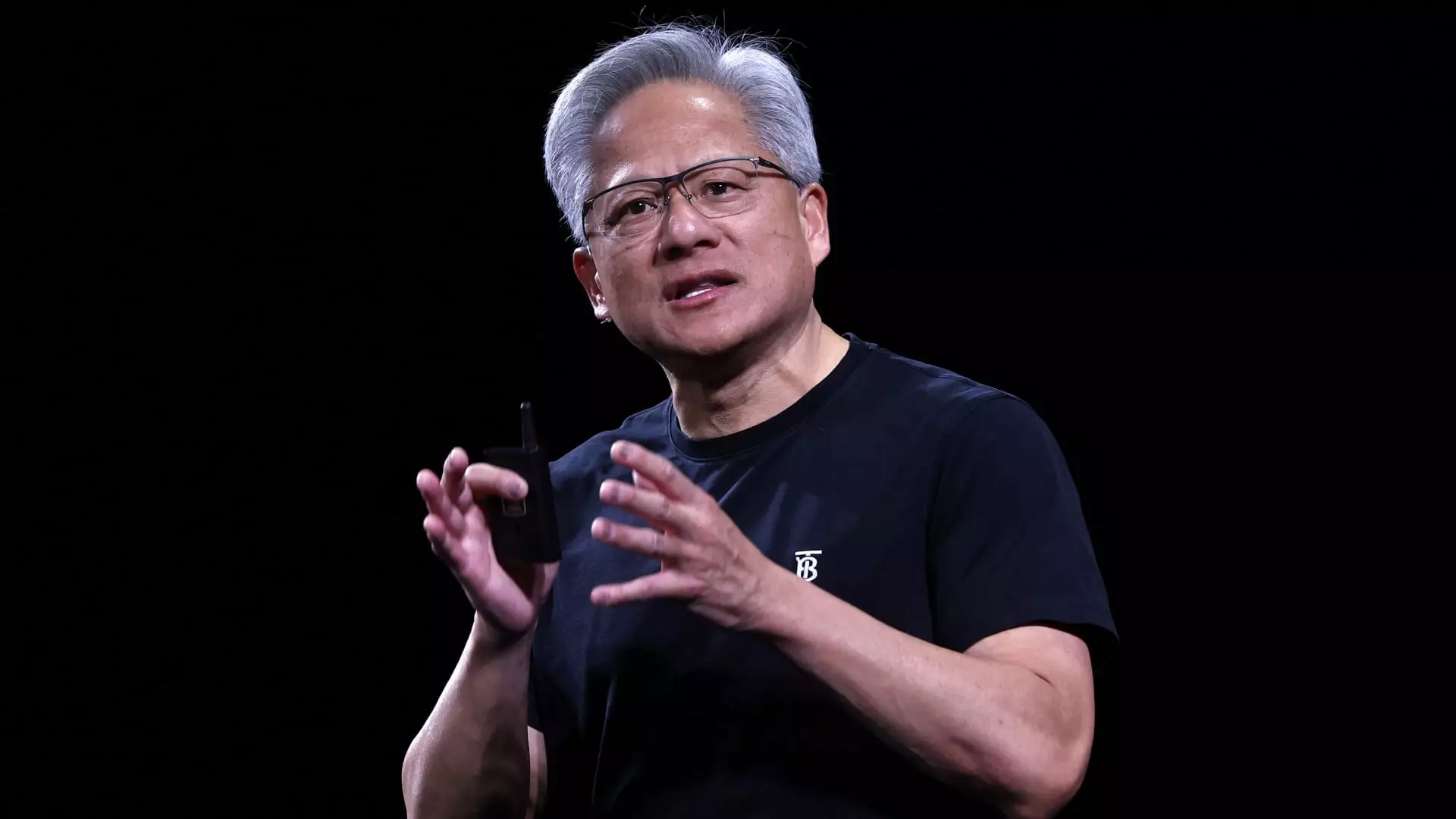Jensen Huang, the dynamic CEO of NVIDIA, has emerged not just as a business leader but a charismatic figure in the technology landscape. Recently, his European tour, which spanned major capitals including London and Paris, brought a palpable excitement reminiscent of a rock concert. This fervor isn’t merely based on his energetic presence; it’s driven by the audacious vision he lays out for the future of artificial intelligence (AI) in Europe. Huang’s claim is bold: NVIDIA is not just a semiconductor manufacturer; it is poised as the critical infrastructure partner that will redefine AI’s role across the continent.
Attending Huang’s engagements was akin to being swept up in a cultural milestone. Crowds eagerly filled auditoriums, waiting for the moment he would take the stage. The atmosphere was charged with anticipation, a stark contrast to typical corporate gatherings. From the throngs lining up for selfies to diverse high-profile leaders, such as U.K. Prime Minister Keir Starmer and French President Emmanuel Macron, clamoring for his attention, Huang embodies a blend of gravitas and accessibility rarely seen in the corporate world.
NVIDIA as Infrastructure: A Paradigm Shift
One of the key messages Huang imparted throughout his European tour is the notion of AI as an infrastructure—akin to electricity. This conceptual leap is vital for Europe, which is striving to establish an autonomous, self-sufficient technological ecosystem. Huang passionately articulated the belief that to compete on a global scale, European nations must collaborate, pooling resources and expertise to create a unified AI infrastructure. His wish for “joint capacity” underlines the urgency of Europe reclaiming its technological sovereignty.
The collaboration announced between NVIDIA and French startup Mistral to develop a dedicated AI cloud exemplifies this vision. Such partnerships are critical because they not only capitalize on NVIDIA’s advanced GPU capabilities but also promote the ethos of localized AI development. The idea of “sovereign AI” resonates profoundly within the context of global geopolitical tensions, particularly with regard to data privacy and technological independence.
The Chinese Technology Landscape and Global AI Rivalry
Huang’s insights went beyond European interests; they significantly touched on the growing influence of Chinese technology companies. As he candidly remarked, NVIDIA has faced hurdles due to U.S. export controls, which have impeded the sale of advanced chips to China. Huang’s comments about Huawei being a generation behind NVIDIA yet nonetheless making strides to compete highlight the stark dichotomy in the global AI race.
His concerns about the implications of a restricted American presence in the Chinese AI market raise alarms about the future trajectory of global technology competition. Huang speculated that if the U.S. continues to distance itself from Chinese firms, nations might increasingly turn towards Chinese technologies for their AI infrastructure needs. This potential shift could radically recalibrate the balance of power in the tech world, laying the groundwork for a new era of AI development that is devoid of significant American influence.
A Vision for the Future: Robotics, Autonomous Vehicles, and Beyond
During his conversations in Europe, Huang did not shy away from the future challenges and opportunities that lie ahead. With an unwavering optimism, he spoke about the “decade of” advancements in robotics and autonomous vehicles. Not just a marketing phrase, this proclamation embodies his belief that the integration of NVIDIA’s technology into everyday solutions can drive leaps in efficiency, effectiveness, and innovation.
Moreover, the discussion surrounding quantum computing reached a crescendo during his keynote at GTC Paris. Huang characterized quantum technology as approaching an “inflection point,” suggesting that it would soon unlock unprecedented capabilities that classical computing struggles to solve. This assertion invites a sense of urgency; as industries scramble to adapt to these breakthroughs, the potential applications—from drug discovery to material science—could radically alter the competitive landscape.
In an era marked by rapid advancements and complex challenges, Jensen Huang stands as a beacon of vision and energy, urging Europe not to remain passive in the face of global competition. Instead, he champions a proactive approach to embracing AI and technology as foundational elements for the continent’s future. Such passion is precisely what Europe needs as it navigates the complexities of the modern technological age; to innovate, to collaborate, and most importantly, to envision a future that they can shape independently.

Leave a Reply